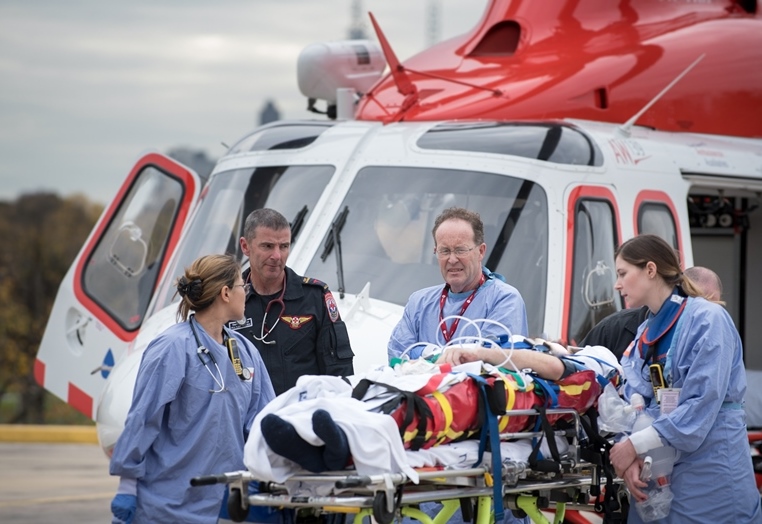Meet Professor Mark Fitzgerald

Professor Mark Fitzgerald, The Alfred's Director of Trauma Services, is certainly well known professionally, having worked at The Alfred for 20 years after starting as the hospital's Director of the Emergency & Trauma Centre.
With over 30 years of clinical experience in the resuscitation of major trauma patients, his work takes him from the frontline of the E&TC to the hospital’s trauma wards, attending critically ill patients with multiple, life-threatening injuries. But personally, the unflappable Prof Fitzgerald is more of a mystery. Known for his gentle humour and love of history, he shies away from talking about himself.
What's the best part of your job?
Seeing people wake up and/or get better, especially those you didn’t think were going to make it. Sometimes the best part is doing a simple thing, like putting in a chest tube or picking a diagnosis on an x-ray. More infrequently it's when a patient laughs at one of my fantastic jokes! (I think I must mumble – because often they don’t appear to understand me or react.)
There is a story that you saved someone's life one day while off duty in the city. Is that true?
I’ve stopped and assisted at many accidents over the years both here and overseas. In 2000 a young girl visiting from Sydney was hit by a car after getting off a tram. She was initially blue and not breathing, but responded to mouth to mouth resuscitation. A couple of years ago I received an unexpected email from her letting me know she’s well and happy. A great present!
What has changed in trauma services since you began?
When I started in the 1990s, we had a 17 per cent mortality rate for the seriously injured - it is now around nine per cent. Overall we have helped halve the death rate from injury in Victoria in a decade. Not many interventions correspond to so many lives saved.
You were a driver of The Alfred’s Trauma Reception and Resuscitation (TRR) System, which has been globally recognised. Can you explain its importance?
I have a strong interest in systems improvement and reducing medical errors. We developed a computer-aided system that guides clinical decision making during the resuscitation phase – the first 60 minutes of treatment. Each time we resuscitate a patient who is severely injured, a critical decision is required every ~70 seconds. Our staff are highly trained and expert – but there is always a likelihood of errors. This system significantly lessens that likelihood.
How does your typical day run?
I get up before 5am, check my emails and review patients, x-rays, scans and other results in preparation for the 7.30am handover between the night and day shifts. I then have ward rounds, clinic or patients in the Trauma Centre.
I'm also involved in a range of research and teaching projects aimed at improving patient care locally and overseas – particularly in China, India, Saudi Arabia, Myanmar and the Philippines. There are always journal articles to review and to write. I'm on-call a couple of nights a week. But on the other nights I sleep very soundly. Really soundly. Like a log. (If someone wants to steal a kidney effortlessly – I’m your man!)
I like running. There is always something to see, time for myself and time to solve problems. I’m also a student of military history. If I’m time-rich and feeling self-indulgent I spend time portrait painting.

“Overall we have helped halve the death rate from injury in Victoria in a decade."
Professor Mark Fitzgerald



_500_333.jpg)